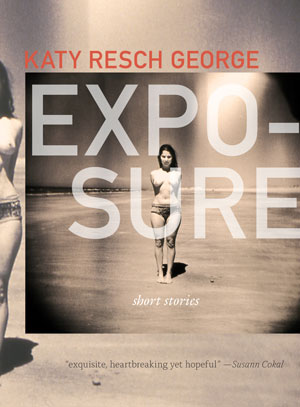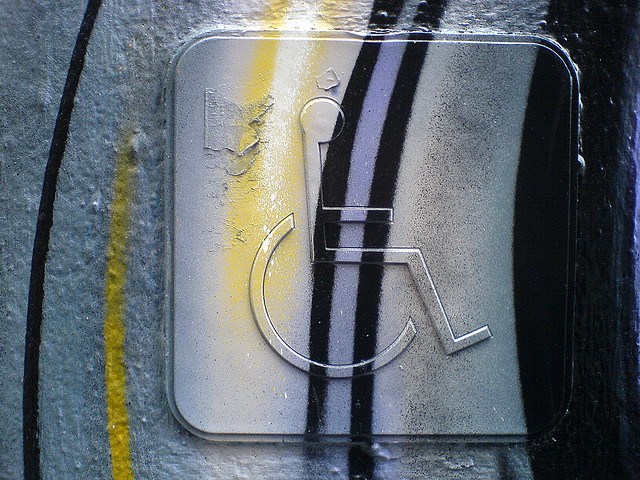 Rebecca Entel’s short stories have appeared in such journals as Guernica, Joyland, and Cleaver. Her first novel Fingerprints of Previous Owners was published in June 2017 from Unnamed Press. She is Associate Professor of English and Creative Writing at Cornell College, where she teaches courses in creative writing, multicultural American literature, Caribbean literature, and the literature of social justice.
Rebecca Entel’s short stories have appeared in such journals as Guernica, Joyland, and Cleaver. Her first novel Fingerprints of Previous Owners was published in June 2017 from Unnamed Press. She is Associate Professor of English and Creative Writing at Cornell College, where she teaches courses in creative writing, multicultural American literature, Caribbean literature, and the literature of social justice.
HOW TO DRINK ENOUGH WATER IN WARTIME by Rebecca Entel

Rebecca Entel
HOW TO DRINK ENOUGH WATER IN WARTIME You have finally logged out from your social media because it was making you physically ill. With less scrolling, you’re not getting more done. You feel bad news from journalists or emails sent somehow across the ocean but from nowhere is about you. People ask you how you’re doing as if it’s about you. You fall ill with thinking anything’s about you. You only see bad news. You’re told the way to take care is with sleep, eight glasses a day, and putting down your phone. You’re told the world is getting more dangerous for you. Your grandmother finally seems right: you live not in the aftertimes but in the in-between-times. Still you walk from your car to your house at the same pace and turn the deadbolt with the certainty of the faithful. You have never considered yourself one of the faithful. You have never known a day without the magic of faucets or a roof that, even with storm-struck, flying limbs, will not hold. Rebecca Entel is the author of a novel, Fingerprints of Previous Owners; stories and essays in such journals as Guernica and Literary Hub; and flash in ...
HOW TO DRINK ENOUGH WATER IN WARTIME You have finally logged out from your social media because it was making you physically ill. With less scrolling, you’re not getting more done. You feel bad news from journalists or emails sent somehow across the ocean but from nowhere is about you. People ask you how you’re doing as if it’s about you. You fall ill with thinking anything’s about you. You only see bad news. You’re told the way to take care is with sleep, eight glasses a day, and putting down your phone. You’re told the world is getting more dangerous for you. Your grandmother finally seems right: you live not in the aftertimes but in the in-between-times. Still you walk from your car to your house at the same pace and turn the deadbolt with the certainty of the faithful. You have never considered yourself one of the faithful. You have never known a day without the magic of faucets or a roof that, even with storm-struck, flying limbs, will not hold. Rebecca Entel is the author of a novel, Fingerprints of Previous Owners; stories and essays in such journals as Guernica and Literary Hub; and flash in ...
WE’VE WAITED FOR VACCINES by Rebecca Entel

Rebecca Entel
WE'VE WAITED FOR VACCINES Of when my father had polio, I’ve heard disjointed details but no narrative. Scalding baths, quarantine, how many adults held him down for the spinal tap, the iron lung, paralysis that one day disappeared. In the world outside, my grandmother lengthened his Hebrew name with Chaim, Life, and my grandfather delivered bread through the night. Under the covers, his sister plucked the braces from her teeth with scissors. Each time visiting hours ended, my grandparents stood outside the hospital staring up at a window. Polio came to him in 1954. The vaccine came to him in 1955. We’ve spoken of 2020 itself as a golem. We’ve started posting pictures of injections or envious responses to others’ pictures of injections. No social media archive exists indicating whether my grandparents dreamt of a vaccine/knew it was coming/raged it had come belatedly for their kid/had never felt such relief when it came, even when they thought they could feel no more relief than three of them leaving the hospital, six legs walking. There’s one photograph of the bicycle bought for him after, with pooled money, and in it my father’s blurry with motion. We’ve let words into our ...
WE'VE WAITED FOR VACCINES Of when my father had polio, I’ve heard disjointed details but no narrative. Scalding baths, quarantine, how many adults held him down for the spinal tap, the iron lung, paralysis that one day disappeared. In the world outside, my grandmother lengthened his Hebrew name with Chaim, Life, and my grandfather delivered bread through the night. Under the covers, his sister plucked the braces from her teeth with scissors. Each time visiting hours ended, my grandparents stood outside the hospital staring up at a window. Polio came to him in 1954. The vaccine came to him in 1955. We’ve spoken of 2020 itself as a golem. We’ve started posting pictures of injections or envious responses to others’ pictures of injections. No social media archive exists indicating whether my grandparents dreamt of a vaccine/knew it was coming/raged it had come belatedly for their kid/had never felt such relief when it came, even when they thought they could feel no more relief than three of them leaving the hospital, six legs walking. There’s one photograph of the bicycle bought for him after, with pooled money, and in it my father’s blurry with motion. We’ve let words into our ...
THE BAREFOOT WOMAN, a novel by by Scholastique Mukasonga, reviewed by Rebecca Entel

THE BAREFOOT WOMAN by Scholastique Mukasonga translated by Jordan Stump Archipelago Books, 146 pages reviewed by Rebecca Entel Purchase this book to benefit Cleaver The Barefoot Woman opens with the author’s mother, Stefania, imparting knowledge to her daughters. “Often in the middle of one of those never-ending chores that fill a woman’s day,” Mukasonga writes, “(sweeping the yard, shelling and sorting beans, weeding the sorghum patch, tilling the soil, digging sweet potatoes, peeling and cooking bananas…), my mother would pause and call out to us.” Much of the book proceeds from this image: we learn the details of her mother’s life and rituals through her endless work and we learn the kinds of things passed down from a Tutsi mother to her daughter—one of only two of eight children to survive the 1994 Rwandan genocide. In that opening scene, Stefania tells her daughters how to properly bury a mother: “when you see me lying dead before you, you’ll have to cover my body […] that’s your job and no one else’s.” Her coming death during 1994’s Tutsi genocide hangs over the entire book from these opening lines, following Mukasonga’s earlier work, Cockroaches, which is specifically about the terrors her family ...
FINGERPRINTS OF PREVIOUS OWNERS, a novel by Rebecca Entel, reviewed by Elizabeth Mosier

FINGERPRINTS OF PREVIOUS OWNERS by Rebecca Entel The Unnamed Press, 209 pages reviewed by Elizabeth Mosier “The narrator of this book is a Caribbean woman. You may have noticed that the writer of this book is not,” Rebecca Entel notes in a preface to Fingerprints of Previous Owners, her novel set at a resort built on the nettle-choked ruins of a former slave plantation. Alluding to her research and credentials as a scholar of nineteenth-century American literature, Entel does more than attempt to deflect criticism for cultural appropriation. She declares her investment in this story, as well as her intention to free her characters from a colonial narrative frame. She begins with Myrna Burre. Entel endorses Myrna’s authority by locating the story’s point of view in this islander who’d “never arrived here from anywhere.” When we meet her in the novel’s opening lines, she and the other “A-Y-S” staff (At Your Service, pronounced “eeeeyes”) are gathered on the beach, wearing white sheets over their uniforms, to perform a compulsory pantomime of a native welcoming ceremony for tourists who are aboard a boat named, with casual tactlessness, The Pinta. (Their baggage is brought by The Nina.) “A team of people with ...
EXPOSURE, short stories by Katy Resch George, reviewed by Rebecca Entel

EXPOSURE by Katy Resch George Kore Press, 168 pages reviewed by Rebecca Entel The cover of Exposure, a short story collection by Katy Resch George, hints at the kind of stories you’ll find inside. The photograph of a topless woman on a beach with her arms tugged behind her is both intimate and distant, the woman exposed but also obscured by the translucent type of the title and, in the repeated image, wrapped around the spine of the book, also underneath type. The woman’s expression is blocked by George’s name on the spine and, on the front cover, hard to make out. Is she scowling at the camera? Pondering something beyond it? Seductive, angry, unsure? George’s female characters, especially, are exposed and obscured in this intriguing book. Exposure begins with the title piece, a short-short story that introduces us to both intimacy and estrangement. Like most of the other short-short stories in the collection, we don’t learn the characters’ names, and the writing achieves tension in how it pulls us in and holds us back. This is form and theme, both. In the short-short (three pages) “Exposure,” a removed third-person narrator takes us through a quick chain of associations. The ...
CRITTER CONTROL by Rebecca Entel

Rebecca Entel
CRITTER CONTROL I hadn’t given much thought to the snake that connected my toilet to the bathroom wall until one July when it split its plastic cap and flooded most of my house. Among other damages, the water buckled the original hardwood floors. It looked as though speed bumps had erupted in my living room. I moved out for months and months, plodding from friend’s guest room to friend’s guest room to temporary apartment. When I finally arrived back on my doorstep in October, house key poised, I found the two nails that held my mezuzah to the front doorpost still there, the very top and very bottom of the mezuzah still nailed in, the body of the mezuzah itself broken off and missing. (If you don’t know what a mezuzah is, trust that this was an ominous sight to come home to.) I soon discovered—from the strip of wall missing between the tub and the rest of the bathroom and from the splinters I was getting from the brand new floor—that the construction company had left a slew of botched repairs that would need to be re-reconstructed, long into the winter and spring. I’d also had a minor ...
CRITTER CONTROL I hadn’t given much thought to the snake that connected my toilet to the bathroom wall until one July when it split its plastic cap and flooded most of my house. Among other damages, the water buckled the original hardwood floors. It looked as though speed bumps had erupted in my living room. I moved out for months and months, plodding from friend’s guest room to friend’s guest room to temporary apartment. When I finally arrived back on my doorstep in October, house key poised, I found the two nails that held my mezuzah to the front doorpost still there, the very top and very bottom of the mezuzah still nailed in, the body of the mezuzah itself broken off and missing. (If you don’t know what a mezuzah is, trust that this was an ominous sight to come home to.) I soon discovered—from the strip of wall missing between the tub and the rest of the bathroom and from the splinters I was getting from the brand new floor—that the construction company had left a slew of botched repairs that would need to be re-reconstructed, long into the winter and spring. I’d also had a minor ...
PERFECT COMPANION by Rebecca Entel

Rebecca Entel
PERFECT COMPANION HOLLIE THOUGHT OF THIS AS A CONTRACT. She and Dana had promised each other they’d be the type of people who remembered things could always be worse. They toasted the tragic. “To James Dean!” “To Princess Di!” “To JFK!” “To RFK!” “To MLK!” “To Elvis!” Still, it was a bummer when their favorite restaurant didn’t have a wheelchair ramp. “Well,” he said. “Let’s go somewhere with a ramp.” “Let’s go somewhere expensive with a ramp,” she said. She was proud of her husband, his tough mouth. If anyone stared at him, Dana glanced up and unholstered his thickest Philly accent: “You shoulda seen the other guy.” It was like the old joke about the grimy Schulkyll River, Hollie told people: if you fall in, don’t bother getting out. The car that hit her husband’s amid the Schulkyll Expressway’s slick March traffic had plummeted into the water below. The ‘other guy’ never bothered getting out until the cops dragged the river, and him. Dana was still half here. Half full, they remembered to remind each other. There were, after all, a lot of ‘other guys.’ They knew this for a fact since they had started skimming the obituaries ...
PERFECT COMPANION HOLLIE THOUGHT OF THIS AS A CONTRACT. She and Dana had promised each other they’d be the type of people who remembered things could always be worse. They toasted the tragic. “To James Dean!” “To Princess Di!” “To JFK!” “To RFK!” “To MLK!” “To Elvis!” Still, it was a bummer when their favorite restaurant didn’t have a wheelchair ramp. “Well,” he said. “Let’s go somewhere with a ramp.” “Let’s go somewhere expensive with a ramp,” she said. She was proud of her husband, his tough mouth. If anyone stared at him, Dana glanced up and unholstered his thickest Philly accent: “You shoulda seen the other guy.” It was like the old joke about the grimy Schulkyll River, Hollie told people: if you fall in, don’t bother getting out. The car that hit her husband’s amid the Schulkyll Expressway’s slick March traffic had plummeted into the water below. The ‘other guy’ never bothered getting out until the cops dragged the river, and him. Dana was still half here. Half full, they remembered to remind each other. There were, after all, a lot of ‘other guys.’ They knew this for a fact since they had started skimming the obituaries ...
ONYX by Rebecca Entel

Rebecca Entel
ONYX Raised voices hush a room, lower eyes. But the sound of skin hitting skin. But a slap. The sound, an air-thickening sponge, slogged from one room to the next. It stilled the action in each. Heads looked away from the TV; hands paused lining the table with silverware; mouths at the door stopped saying hello. After a few minutes, our hostess came back downstairs. Her eyes were the slightest bit red. But she smiled. “Time for dinner, everyone.” We followed her into the dining room. Our host came in quietly while we were shuffling about, finding seats. He sat down at the head of the table. We avoided eye contact with both of them. Soon dinner began and was busy. Our hostess spoke and smiled; tension drained from the room. We all eased, slumping in our chairs like unclaimed marionettes. Drinks slipped through chattering lips. We returned to smiling at our host. He conversed easily and welcomed us back in with blue eyes. After dinner it was time to leave. We left in groups, pairs. The house was empty in minutes. Our hostess stood in the shadowed doorway, waving goodbye, watching us retreat. We got in our ...
ONYX Raised voices hush a room, lower eyes. But the sound of skin hitting skin. But a slap. The sound, an air-thickening sponge, slogged from one room to the next. It stilled the action in each. Heads looked away from the TV; hands paused lining the table with silverware; mouths at the door stopped saying hello. After a few minutes, our hostess came back downstairs. Her eyes were the slightest bit red. But she smiled. “Time for dinner, everyone.” We followed her into the dining room. Our host came in quietly while we were shuffling about, finding seats. He sat down at the head of the table. We avoided eye contact with both of them. Soon dinner began and was busy. Our hostess spoke and smiled; tension drained from the room. We all eased, slumping in our chairs like unclaimed marionettes. Drinks slipped through chattering lips. We returned to smiling at our host. He conversed easily and welcomed us back in with blue eyes. After dinner it was time to leave. We left in groups, pairs. The house was empty in minutes. Our hostess stood in the shadowed doorway, waving goodbye, watching us retreat. We got in our ...
